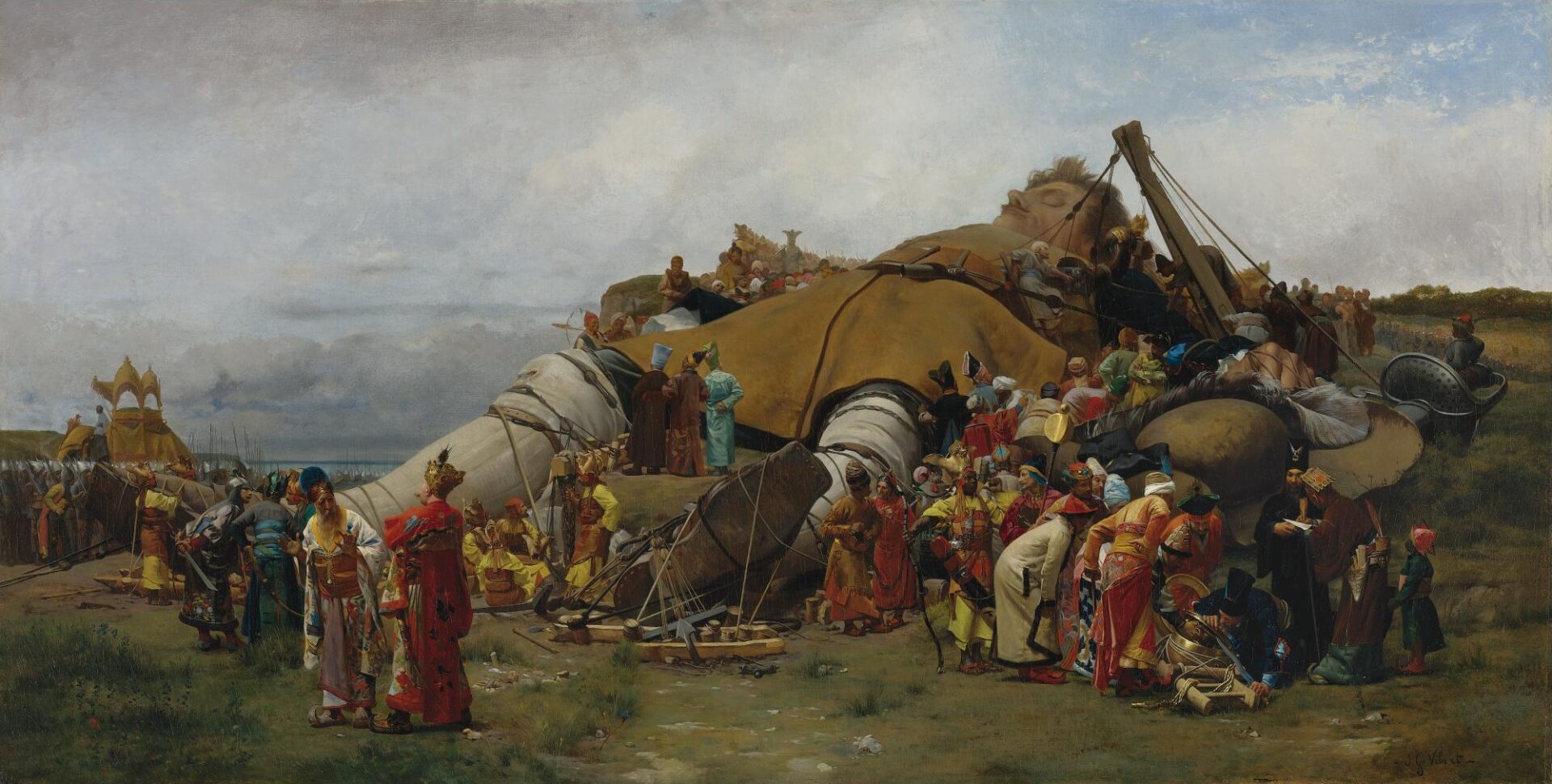In what was something like my 160th piece for FPR (“Happy Birthday to Us, and Long May we Honor our Greatest Satirist”), penned to mark the website’s 3rd anniversary, I suggested that Jonathan Swift had “beat us all to the porch” long ago. Here I excerpt some passages from that essay, published in March of 2012, to direct attention back to some of the founding principles.
Does posting this make me guilty of originalism? I am content being accused of opportunism.
One hundred and fifty-six plus essays ago I asked myself whether there were any Gods in our literary Pantheon to whom we could turn for instruction on matters of place, limits, and liberty…. In it I suggested that a certain learned doctor from the eighteenth century, one Jonathan Swift, might best be thought of as a localist much in advance of his time—that, indeed, he beat us all to the porch.
For, indeed, he did.
Every grammar-school pupil knows that Swift was the author of “A Modest Proposal,” that splendid piece of unrelenting irony in which (I noted three years ago) Swift’s Proposer, having studied carefully the abject penury of the Irish, rejects sound economic solutions—like taxing the bejeesus out of absentee owners, encouraging the purchase of local goods, reducing dependence on foreign suppliers, reigning in gamblers, and practicing thrift, honesty, industry, and skill—and instead recommends that his fellow Emerald-Islanders raise and fatten their children for slaughter—rather like meat hogs.
But prior to his putting the final touches on that economico-culinary masterpiece, Swift knocked out several tracts and sermons on the problems of the Irish economy. And in them he said, in good FPR fashion, several FPRish things—for example, that place matters:
[one] cause of our miserable state is the folly, the vanity, and ingratitude of those vast numbers, who think themselves too good to live in the country which gave them birth, and still gives them bread, and rather choose to pass their days, and consume their wealth, and draw out the very vitals of their mother kingdom, among those who heartily despise them.
He also accounted it a bad idea to turn luxuries into necessities:
[another cause of our miserable state is] that monstrous pride and vanity . . . especially [in] the weaker sex, who, in the midst of poverty, are suffered to run into all kind of expense and extravagance in dress, and particularly priding themselves to wear nothing but what cometh from abroad, disdaining the growth or manufacture of their own country.
(Recall Gulliver: “I assured him that this whole globe of earth must be at least three times gone round before one of our better female Yahoos could get her breakfast, or a cup to put it in.”)
Swift may have had misanthropic tendencies, but he was no misogynist, for men fared no better under his censure than women:
neither are the men less guilty of this pernicious folly, who, in imitation of a gaudiness and foppery of dress, introduced of late years into our neighbouring kingdom (as fools are apt to imitate only the defects of their betters), cannot find materials in their own country worthy to adorn their bodies of clay, while their minds are naked of every valuable quality.
Swift knew well the importance of giving priority to the local economy:
our tradesmen and shopkeepers, who deal in home-goods, are left in a starving condition, and only those encouraged who ruin the kingdom by importing among us foreign vanities.
And he abhorred idleness and video-game addiction in children:
whereas in all industrious nations, children are looked upon as a help to their parents, with us, for want of being early trained to work, they are an intolerable burthen at home, and a grievous charge upon the public.
Although Swift was a sublime critic and a better satirist, he didn’t deal only in criticism. He also proffered some good positive suggestions. “I shall only enumerate by rules generally known, and never contradicted,” he wrote, “what are the true causes of any countries [sic] flourishing and growing rich.”
A nation flourishes, he said (again in good FPR fashion), when it takes care of the topsoil.
The first cause of a kingdom’s thriving is the fruitfulness of the soil, to produce the necessaries and conveniences of life, not only sufficient for the inhabitants, but for exportation into other countries.
It also flourishes when it limits absenteeism:
[another cause of a kingdom’s flourishing] is the residence of the prince, or chief administrator of the civil power. . . . We are so far from having a king to reside among us, that even the viceroy is generally absent four-fifths of his time in the government.
And when it actually bothers to make what it needs:
[yet another cause] is a disposition of the people of a country to wear their own manufactures, and import as few incitements to luxury, either in clothes, furniture, food, or drink, as they possibly can live conveniently without.
And also when it owns up to the dangers of abstraction (which agrarians from Tate to Berry have told us is always the enemy):
we are in the condition of patients, who have physic sent them by doctors at a distance, strangers to their constitution and the nature of their disease.
Uncanny? The Reverend Dr. Swift put his Front Porch finger on several of our worst maladies: upward mobility, contempt for the places that sustain us (doubly detestable in those who have “risen” from such places), outsourcing, enslavement to fashion, and the habit of raising children to do nothing more productive than sit on their Frito-fed Hoo-Hahs until the entertainment industry has successfully amused them into indolence.
And, like a good localist, Swift saw what needed doing: taking care of the soil, avoiding abstraction, especially in ownership but also in leadership, providing for ourselves, and solving problems with solutions suited to individual places—that is, seeking local wisdom.
Image credit: “Gulliver and the Liliputans” by Jehan-Georges Vibert via Wikimedia







2 comments
techylist
Jonathan Swift’s Street Cred – Front Porch Republic is a great read. I learned a lot about Jonathan Swift and his work.
Martin
Coincidentally, I reread book 3 of Gulliver last week: his journey to the flying island and its ground-based kingdom. Lots of criticism of bizarre scientific projects (e.g., extracting sunbeams out of cucumbers to regain the solar energy), political correctness (e.g., a blind prof who inaccurately teaches sighted students to discern color by touch, but is nevertheless praised by fellow academics), and various epithets tossed at bureaucrats and governments.
But book 4 about the Yahoos repeatedly notes that the horse-like Houyhnhnms cannot comprehend lying nor travel across seas. So despite long conversations with his host, his tales are basically perceived as fantasies, because the horses cannot imagine any place outside their own country. Of course, the bigger satire is that Gulliver inevitably recounts numerous atrocities of human civilization while trying to explain a world where humans are in charge and horses are subservient — a superb reversal that provides an outside perspective on humanity.
A more recent attempt:
https://www.youtube.com/watch?v=cwnH6O-cJJs
Comments are closed.